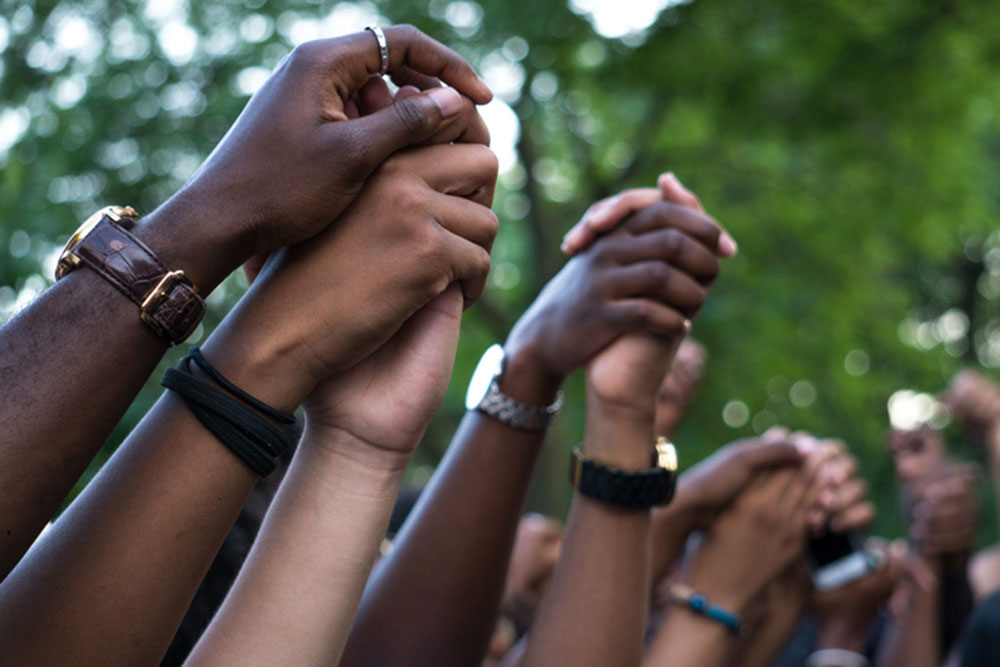
iStock photo.
THE KILLING of George Floyd and the protests that followed reminded LittleBird Nancy of something from a couple of summers ago in DC. A Georgetown neighbor mentioned an incident involving his son and friends a few nights earlier. The son, a law student, and his housemates had had the music in their nearby rented row house cranked way up after midnight and had been outed by a neighbor and so the police came a-calling.
Apparently chastened, the boys turned down the music and the cops left.
The boys, in their early 20s, then waited a nanosecond and turned the music back up. Georgetown cops, being no fools, were right around the corner and drove back almost immediately. Upon seeing the police, the students inexplicably—stupid? drunk? stupid drunk?—then proceeded to drop trou’ and moon the officers from the second-story windows of the house.
What followed was inevitable for drunken (one presumes) white college kids: They got hauled in, spent a few hours in a holding cell, called their parents and were let go.
The father telling the story, an Austrian lawyer, seemed baffled and concerned at the same time. Nancy can’t remember which black student/jogger/driver/suspect had been treated rather differently by police that summer, but her lawyer neighbor and she obviously had the same thought: If the kids had been black, she suggested, they would be dead. “I know,” the lawyer dad said.
That, in case you don’t recognize it, is an example of white privilege, generally unnoticed or unexamined (by white people). Tired of hearing about it, think it’s sanctimonious to mention? Maybe that means you’re among those who get it. Or, on the other hand, tired of being told (also often sanctimoniously) that white people can’t speak out about black people and what they’ve experienced but can only listen? Listen, absolutely. But also perhaps channel the Quakers who sat on the pavement in downtown DC last week with a sign that read, “End White Silence.”
And also take hope from a Wall Street Journal story this weekend reporting that sales of books about the history of racism and race relations have popped, big-time. As of Friday morning, the Journal reported, nine of the top 10 best-selling titles on Barnes and Noble explored those core themes. High on the list for B&N as well as Amazon were White Fragility: Why It’s So Hard for White People to Talk About Racism, a two-year-old book by Robin DiAngelo, and How to Be an Anti-Racist, by Ibram X. Kendi, published in 2018.
So it’s turning out that the spring and summer of social-distancing are not allowing for any distance at all from America’s long-standing social challenges.
—The Editors
MyLittleBird often includes links to products we write about. Our editorial choices are made independently; nonetheless, a purchase made through such a link can sometimes result in MyLittleBird receiving a commission on the sale, whether through a retailer, an online store or Amazon.com.

A right wing “friend,” who I keep in facebook touch with because I need to know what the other side thinks, told me to look at his arrest record (which is a little hard to find, but I did). It is lengthy, and both irrelevant and relevant. Irrelevant because what happened happened and it is so very wrong and disgusting — and relevant because it made me really think about the man’s life, why it got so off course, and what he was attempting to do to make it better for himself and his family.
Loved this line:
“So it’s turning out that the spring and summer of social-distancing are not allowing for any distance at all from America’s long-standing social challenges.”
How better to make sense of a quarantine – a “time out” from life than – than to spend time thinking about how to make life amends to those we’ve injured. Thank you.